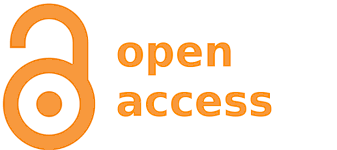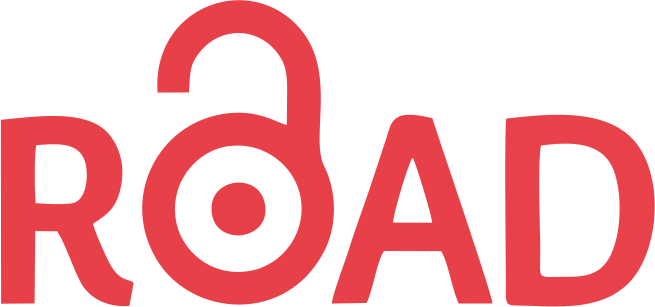Stochastic Integer Waste Management Problem Solved by a Modified Progressive Hedging Algorithm
Abstract
In this paper we describe a real-world large-scale stochastic integer waste-management decision making problem. The problem consists of choosing the optimal locations and capacities of new incineration plants, that will be used for the disposal of waste. To solve this problem, we implement a modied version of the progressive hedging algorithm. The presented case study with real-world data concerns the situation in the Czech Republic.
References
Bazaraa, M.S., Jarvis, J.J., and Sherali, H.D.: Linear programming and network flows. John Wiley and Sons, New York (1990)
Birge, J.R., Louveaux, F.: Introduction to Stochastic Programming. Springer, New York (1997)
Dolezel, P., Heckenbergerova, J., Mariska, M., and Skrabanek, P.: Transportation schedule-respected production planning using genetic algorithm based approach. Mendel 21(1), 31–38 (2015)
Gade, D., Hackebeil, G., Ryan, S.M., Watson, J.-P., Wets, R.J.-B., and Woodruff, D.L.: Obtaining lower bounds from the progressive hedging algorithm for stochastic mixed-integer programs. Mathematical Programming 157(1), 47–67 (2016)
Hrabec, D., Popela, P., Roupec, J., Jindra, P., and Novotny, J.: Hybrid algorithm for wait-and-see transportation network design problem with linear pricing:. Mendel 21(1), 183–188 (2015)
Hrabec, D., Viktorin, A., Somplak, R., Pluhacek, M., and Popela, P.: A heuristic approach to the facility location problem for waste management: A case study. Mendel 22(1), 61–66 (2016)
Hrabec, D., Somplak, R., Nevrly, V., and Smejkalova, V.: Sustainable model integration of waste production and treatment process based on assessment of GHG. Chemical Engineering Transactions 70(1), 1603–1608 (2018)
Janostak, F., Pavlas, M., Putna, O., Somplak, R., and Popela, P.: Heuristic approximation and optimization for waste-to-energy capacity expansion problem. Mendel 22(1), 123–130 (2016)
Kudela J., Popela P.: Two-stage stochastic facility location problem: GA with benders decomposition. Mendel 21(1), 53–58 (2015)
Kudela, J., Popela, P., Somplak, R., Malek, M., Rychtar, A., and Hrabec, D.: The L-shaped method for large-scale mixed-integer waste management decision making problems. Chemical Engineering Transactions 61(1), 1087–1092 (2017)
Kudela, J., Popela, P.: Warm-start cuts for generalized benders decomposition. Kybernetika 53(6), 1012–1025 (2017)
Kudela, J., Somplak, R., Nevrly, V., and Lipovsky, T.: Robust waste transfer station planning by stochastic programming. Chemical Engineering Transactions 70(1), 889–894 (2018)
Marada, T., Matousek, R., and Zuth, D.: Design of linear quadratic regulator (LQR) based on genetic algorithm for inverted pendulum. Mendel 23(1), 149–156 (2017)
Nevrly, V., Somplak, R., Popela, P., Pavlas, M., Osicka, O., and Kudela, J.: Heuristic challenges for spatially distributed waste production identication problems. Mendel 22(1), 109–116 (2016)
Osicka, O., Hrdina, J., Somplak, R., Popela, P., and Pavlas, M.: Shapley value approximation for games with distant players. Mendel 22(1), 103–108 (2016)
Pavlas, M., Nevrly, V., Popela, P., and Somplak R.: Heuristic for generation of waste transportation test networks. Mendel 21(1), 189–194 (2015)
Pavlas, M., Somplak, R., Smejkalova, V., Nevrly, V., Zaviralova, L., Kudela, J., and Popela, P.: Spatially distributed production data for supply chain models - Forecasting with hazardous waste. Journal of Cleaner Production 161(10), 1317–1328 (2017)
Rardin, R.L.: Optimization in Operations Research. Second edition, Person, Hoboken, New Jersey (2015)
Smejkalova, V., Somplak, R., Nevrly, V., and Pavlas, M.: Heuristic methodology for forecasting of quantities in waste management. Mendel 23(1), 185–192 (2017)
MENDEL open access articles are normally published under a Creative Commons Attribution-NonCommercial-ShareAlike (CC BY-NC-SA 4.0) https://creativecommons.org/licenses/by-nc-sa/4.0/ . Under the CC BY-NC-SA 4.0 license permitted 3rd party reuse is only applicable for non-commercial purposes. Articles posted under the CC BY-NC-SA 4.0 license allow users to share, copy, and redistribute the material in any medium of format, and adapt, remix, transform, and build upon the material for any purpose. Reusing under the CC BY-NC-SA 4.0 license requires that appropriate attribution to the source of the material must be included along with a link to the license, with any changes made to the original material indicated.







